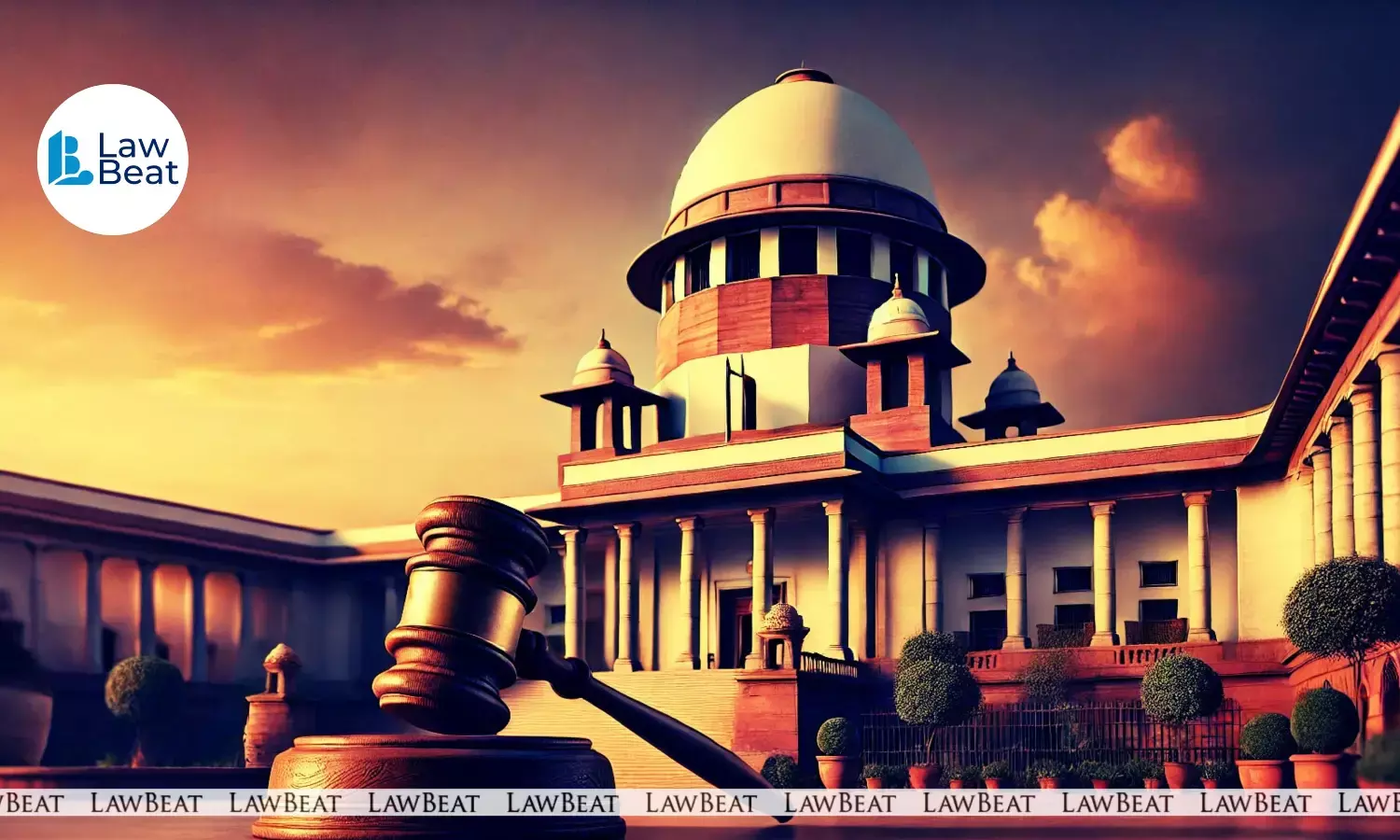Section 420 IPC: Supreme Court Clarifies When Cheating Offence Is Attracted

The Supreme Court clarify that cheating under Section 420 IPC requires proof of inducement
The Supreme Court recently clarified the legal requirement for the offence of cheating under the Indian Penal Code, specifically noting that to attract the offence, a person must knowingly make a false statement which would induce another "to part with property or to do or omit to do a thing which the victim would not do or omit unless deceived and thereby is likely to suffer damage/harm in body, mind, reputation or property".
A bench of Justices B V Nagarathna and Joymalya Bagchi clarified the position while allowing a petition filed by Jupally Lakshmikantha Reddy, effectively quashing the criminal proceedings initiated against him under Section 420 of the IPC. There were allegations that Reddy sought recognition for an educational institution using a forged No-Objection Certificate (NOC) from the fire department.
The bench observed, "Uncontroverted allegations in the charge sheet including the order in the writ proceedings, unequivocally show NOC from the Fire Department was not necessary for grant of such recognition/renewal of affiliation as the height of the appellant’s building was below 15 metres".
Given this factual context, court added that the appellant's representation that he possessed a valid NOC could not be said to have induced the Education Department to grant recognition or renew the affiliation.
The bench further held, "To attract penal consequences, it must be shown that the false representation was of a material fact which had induced the victim to either part with property or act in a manner which they would not otherwise do but for such false representation. In the absence of such vital link between the alleged false representation and the issuance of recognition/renewal of affiliation, the essential ingredient of offence is not satisfied".
The appellant had moved the apex court after the Andhra Pradesh High Court refused, through its order of April 18, 2024, to quash the proceedings.
The appellant’s society, JVRR Education Society, had been operating a college since 2016 from a non-multi-storeyed building that had a height of 14.20 metres, comprising a ground floor and three upstairs floors. An FIR was lodged on July 15, 2018, based on a complaint by V Sreenivasa Reddy, District Fire Officer, Kurnool. The complaint alleged that the college had secured a recognition certificate from the School Education Department by submitting a forged NOC purportedly issued by the Assistant District Fire Officer, Kurnool. Subsequently, a charge sheet was filed under Section 420 IPC, alleging that the Inspector of Police had visited the District Fire Office and learned the District Fire Officer had not issued the NOC, and that only a xerox copy of the Fire NOC was submitted to the office of the State Council of Educational Research and Training to obtain recognition and run the institution.
Examining the matter, the Supreme Court noted that, admittedly, as per the National Building Code of India, 2016, an NOC from the concerned officer of the Fire Department was not necessary for educational buildings which were below 15 metres in height. The appellant’s society was running the educational institution from a building having a height of 14.20 metres. Furthermore, in a writ petition, the high court had previously directed the Education Department to renew affiliation without insisting on furnishing a fire NOC. On July 01, 2019, a contempt notice was also issued upon the Education and Fire Departments for non-compliance. The appellant claimed the current criminal case was registered as a counter-blast to intimidate and harass him.
By the impugned order, the high court was of the view that the issue of whether the appellant’s society required an NOC from the Fire Department to run the educational institution could not be considered at the preliminary stage, leading it to refuse to quash the proceedings.
The Supreme Court noted the gist of the accusation in the charge sheet was that the appellant had dishonestly used a fake NOC from the Fire Department to obtain recognition/renewal of affiliation to run the educational institution. However, the court pointed out that it was evident from the order passed in the writ proceedings that an NOC from the Fire Department was not necessary for recognition/renewal of affiliation of educational institutions which are imparting education from buildings having a height below 15 metres.
After reviewing the ingredients of the offence, the bench noted that in Dr. Sharma’s Nursing Home v. Delhi Admn. & Ors (1998), the court held that mere deception by itself would not constitute cheating unless the other essential ingredient, which is dishonest inducement, is established.
The state counsel had contended that the contours of the offence of forgery were evident since the appellant had knowingly used a fake document, even though the charge sheet was filed only for the offence under Section 420. Rejecting this contention, the bench said, "We are unable to accept her submission on this score too. There is nothing on record to show the appellant had manufactured the alleged fake document which is a sine qua non to attract Section 465 IPC. In fact, the original fabricated document had not been recovered".
Court also pointed out that offences under Section 468 IPC and Section 471 IPC were not attracted, as the requisite mens rea, i.e., dishonest intention to cause wrongful loss to the Education Department and wrongful gain to himself, had not been demonstrated since the issuance of the recognition was not dependent on the production of the alleged forged NOC.
The bench held that the high court failed to consider these relevant issues, which clearly demonstrate that the uncontroverted allegations in the chargesheet, in the teeth of the order of April 25, 2018 in the writ petition, do not disclose the essential ingredients of cheating or forgery.
Case Title: Jupally Lakshmikantha Reddy Vs State of Andhra Pradesh & Anr
Bench: Justices B V Nagarathna and Joymalya Bagchi
